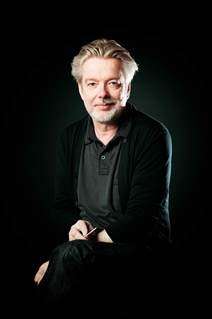|
Back
One last tour Frankfurt
Alte Oper
05/06/2013 - & April 24, 25 (Oslo), May 5 (Freiburg), 7 (Berlin), 2013
Johannes Brahms: Piano Concerto No. 2, opus 83
Jean Sibelius: Symphony No. 5, opus 82
Arcadi Volodos (Piano)
Oslo Filharmoniske Orkester, Jukka-Pekka Saraste (Conductor)

J.-P. Saraste (© Juha Ruuska)
The sound from the Oslo Philharmonic, an ensemble created by Grieg and probably brought to fame by no less than Mariss Jansons in the 80s is much darker than what Frankfurt audiences must be used to in German music with a center of gravity more on the violas and cellos than the violins whose tone was often a little thin by comparison. While this could be felt as unidiomatic, this matched actually quite well the depth of tone that Russian pianist Arcadi Volodos was producing. The many concertante passages of Brahms’s Second Piano Concerto were done with great care and particular attention to balance. Although this program had been already played in Oslo and already on tour, it took some time for soloist and conductor to be fully at one, Saraste looking for flow and a big line while his soloist was taking quite a lot of rhythmic liberty in the solos of the Allegro non troppo at the expense of some continuity. There were a couple of rough passages in the subsequent movement but Volodos proved to be sensitive to its appassionato character. The wonderful cello had superb phrasing and tone in her solo of the Andante and the final Allegretto grazioso had a nice pulse. This performance was well received by a very quiet and attentive audience which was rewarded with a Schubert Minuet as an encore, played by Volodos with this typical Russian orchestral playing, the right hand with a delicate singing line while the left was playing a double-bass like accompaniment.
Sibelius’s Fifth Symphony is probably the Finnish composer’s most highly regarded masterpiece and this shows in no way any disrespect to his other works. Hearing such a revered work by a Scandinavian orchestra is a genuine treat, comparable, as a friend and an esteemed critic put it in words, like watching a football team on their own stadium. In this case, the musicians displayed a very keen sense of line. The many transitions which are key to this work were done with confounding naturalness. Some orchestras can make more of some climaxes, particularly as string tone remained a little thin but the accelerando of the first movement or the broadening of the last one were models of their kinds.
Jukka-Pekka Saraste will leave his position in Oslo after six years, when he took over Andre Previn. Vasily Petrenko will replace him. He is definitely going to find in his new orchestra a strong ensemble.
Antoine Leboyer
|